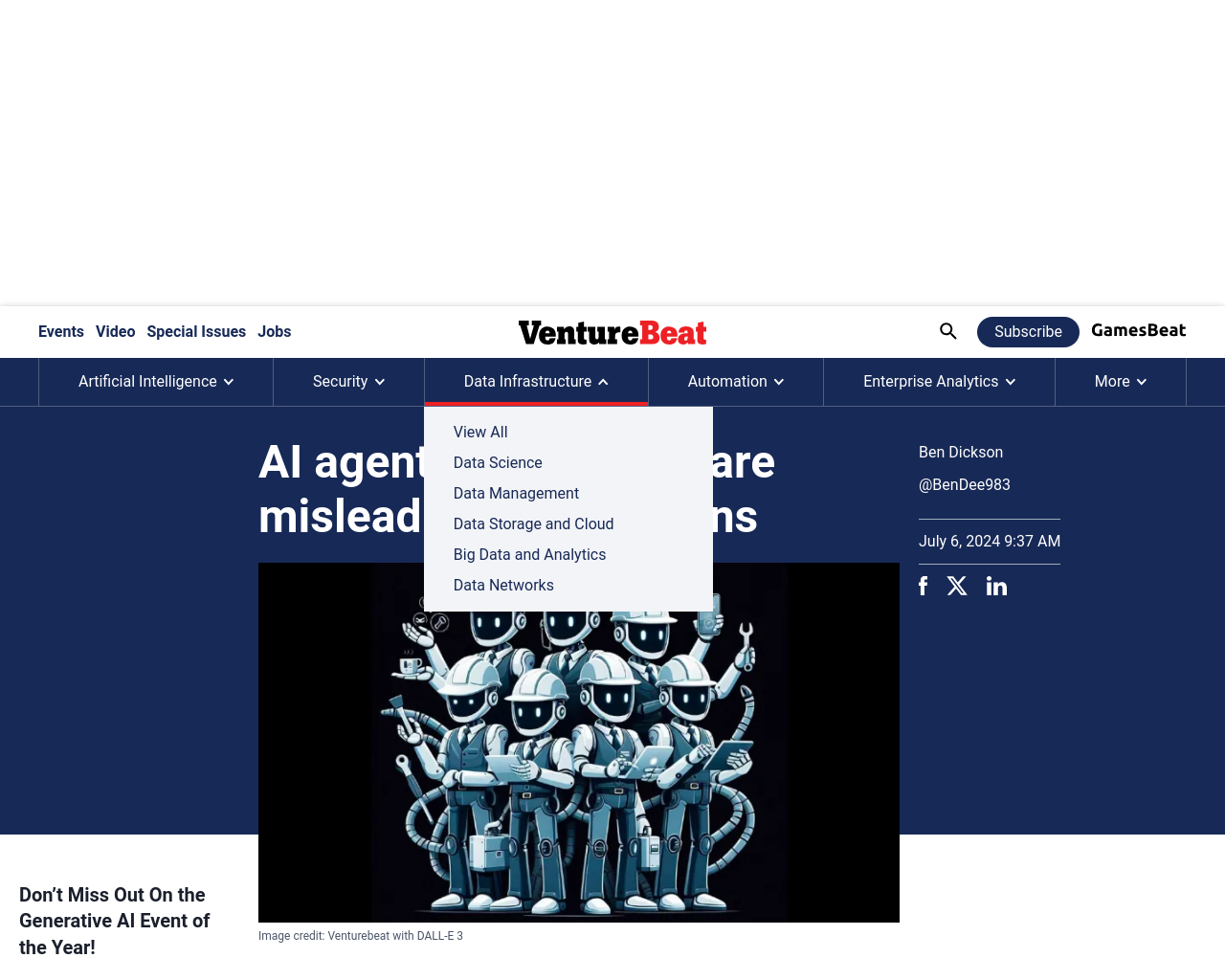- AI agents use foundation models like large language models (LLMs) and vision language models (VLMs) to process natural language instructions and pursue goals.
- Princeton University researchers identified shortcomings in current agent benchmarks and evaluations for real-world applications.
- A major issue is the lack of cost control in agent evaluations due to the variability in results from stochastic language models.
- Joint optimization of accuracy and inference cost is crucial for developing cost-effective AI agents.
- Evaluating inference costs is essential for practical applications, as different models and techniques can have varying costs.
- Overfitting is a significant concern in agent benchmarks, leading to misleading accuracy estimates and inflated capabilities.
- Benchmark developers should create holdout test sets to prevent shortcuts and ensure proper evaluation of AI agents.
- Research communities need to establish best practices for AI agent benchmarking to distinguish genuine progress from hype.
考察:
AIエージェントの評価におけるコスト管理の重要性や、モデルの過適合による問題、ベンチマーク開発者の責務などが示唆されている。AIエージェントの実用的な適用において、正確性と推論コストの両方を最適化することが重要であることが強調されている。AIエージェントの評価において、ベンチマーク開発者がショートカットを防ぐためのテストセットを作成する必要性が示されており、研究コミュニティがAIエージェントのベンチマークに関するベストプラクティスを確立する必要性が指摘されている。
元記事: https://venturebeat.com/ai/ai-agent-benchmarks-are-misleading-study-warns/

